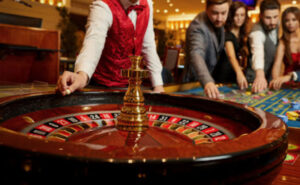
RTP stands for return to player. Basically it’s a measure of how much money you can expect to lose over the long-term play. RTP is a term usually reserved for slot machines, although it still applies for any other casino game.
How Do Casinos Apply RTP?
If you hear the term “odds”, you may mistakenly believe that this is the amount you receive for a win. For example, in horse racing the odds of a horse winning may be 10 to 1. This means that if you bet one dollar, and the horse wins, you will get back $10. This is a profit of $9. But this is actually the payout, not the odds of winning.
How can you calculate the odds of a horse winning? That’s no easy task considering the vast amount of variables. Horses could be lame, tired or injured, the jockey could be having a bad day, and who knows what other variables are involved? Granted you don’t need to know all variables. Professional punting is mostly about calculating the main variables, and determining which bets are the best value. But that’s a topic for another article.
But what about casino games? In this case, calculating the RTP is much simpler, and it’s the same for all online roulette like Betiton roulette. The RTP comes from the difference between odds and payout. First, we must assume that all roulette wheels and games are created equal. In reality, we know it’s not the case because real physical wheels have immense differences to random number generator roulette. If you are familiar with our website, you would understand that there is no such thing as a truly random spin on a real wheel. But let’s assume that all types of roulette are equally random as each other.
Odds Vs Payout In Roulette
On the European roulette wheel, there are 37 pockets including green single zero. This means if you bet on a single number, you have a one in 37 chance of winning. These are your odds of winning.
The payout if you win is 35 to 1. This means you get back your original unit, plus 35 additional units. If roulette were a fair game, you should get back 36 units, plus the original unit your bet, making a total of 37 units for a win. This difference of one unit is where the house edge comes in. Basically the house edge is the casino paying you less than they should, if the game were to be fair. Put a more simple way, the payouts in roulette are unfair. These unfair payouts apply to every casino game, and is just how casinos make their money. In most casinos and jurisdictions, it’s a legal requirement to publish the payouts and odds of winning for gamblers to see. Although most gamblers only pay attention to the payouts, without consideration of the size of the house edge.
Translating House Edge to RTP
Return to player is simply the amount the player keeps divided by the amount they bet. So if you bet $100, and end up with $97 after playing, then the return to player is 97÷100 equals 0.97.
Now let’s put this in context for online roulette.
If you bet on a single number for 37 spins on the European wheel, statistically you will win once. You may win more, or even not at all. But over the long-term, one in 37 spins is the average, again assuming the spins are totally random.
So on one spin, you will get back 36 units. And on 36 spins, you will lose one unit per spin, which is 36 units. So the RTP is therefore 36÷37 = 0.972.
You can do the same calculations with any other type of bet in roulette. You’ll find that the house edge and return to player is the same, no matter what you bet. There are some exceptions on the European wheel, and other types of roulette bets although they are less common. For more details see our page discussing roulette odds and payouts.
To get the best free roulette systems that really work, see the top 5 proven roulette systems and the video series below. It's the best 100% free information for winning roulette you'll find. It's written by professionals who are really earning a living from roulette. |


